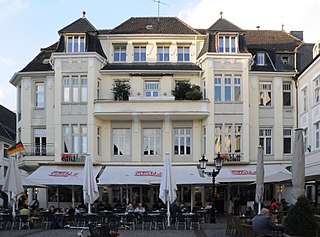A Quote by Jose Saramago
Each part in itself constitutes the whole to which it belongs.
Related Quotes
"Pieces" almost always appear 'as parts' in whole processes. ... To sever a "'part" from the organized whole in which it occurs-whether it itself be a subsidiary whole or an "element"-is a very real process usually involving alterations in that "part". Modifications of a part frequently involve changes elsewhere in the whole itself. Nor is the nature of these alterations arbitrary, for they too are determined by whole-conditions.
Since the whole city has one end, it is manifest that education should be one and the same for all, and that it should be public, and not private - not as at present, when every one looks after his own children separately, and gives them separate instruction of the sort which he thinks best; the training in things which are of common interest should be the same for all. Neither must we suppose that any one of the citizens belongs to himself, for they all belong to the state, and are each of them a part of the state, and the care of each part is inseparable from the care of the whole.
But if you do know what is taught by plants and weather, you are in on the gossip and can feel truly at home. The sum of a field's forces [become] what we call very loosely the 'spirit of the place.' To know the spirit of a place is to realize that you are a part of a part and that the whole is made or parts, each of which in a whole. You start with the part you are whole in.
I think the media in America have been absolutely fantastic about the rise of Trump, they've kept a firm eye on the ball: this constitutes democracy, this constitutes transparency, this constitutes fairness, this constitutes the way to behave in a civic society, this constitutes fascism, this constitutes authoritarianism. They're drawing that line, and they're calling him out every time. That's really what needs to happen, and you just have to do that.
Prayer brings to us blessings which we need, and which only God can give, and which prayer can alone convey to us ... This service of prayer is not a mere rite, a ceremony through which we go, a sort of performance. Prayer is going to God for something needed and desired. Prayer is simply asking God to do for us what he has promised us he will do if we ask him ... Asking is man's part. Giving is God's part. The praying belongs to us. The answer belongs to God.
When the logician has resolved each demonstration into a host of elementary operations, all of them correct, he will not yet be in possession of the whole reality, that indefinable something that constitutes the unity ... Now pure logic cannot give us this view of the whole; it is to intuition that we must look for it.
God's Word is not presented in Scripture in the form of a theological system, but it admits of being stated in that form, and, indeed, requires to be so stated before we can properly grasp it - grasp it, that is, as a whole. Every text has its immediate context in the passage from which it comes, its broader context in the book to which it belongs, and its ultimate context in the Bible as a whole; and it needs to be rightly related to each of these contexts if its character, scope and significance is to be adequately understood.
No man is an island- he is a holon. A Janus-faced entity who, looking inward, sees himself as a self-contained unique whole, looking outward as a dependent part. His self-assertive tendency is the dynamic manifestation of his unique wholeness, his autonomy and independence as a holon. Its equally universal antagonist, the integrative tendency, expresses his dependence on the larger whole to which he belongs: his 'part-ness.'.
The first act by virtue of which the State really constitutes itself the representative of the whole of societythe taking possession of the means of production in the name of societythis is, at the same time, its last independent act as a State. State interference in social relations becomes, in one domain after another, superfluous, and then dies out of itself; the government of persons is replaced by the administration of things, and by the conduct of processes of production. The State is not abolished. It dies out.







































